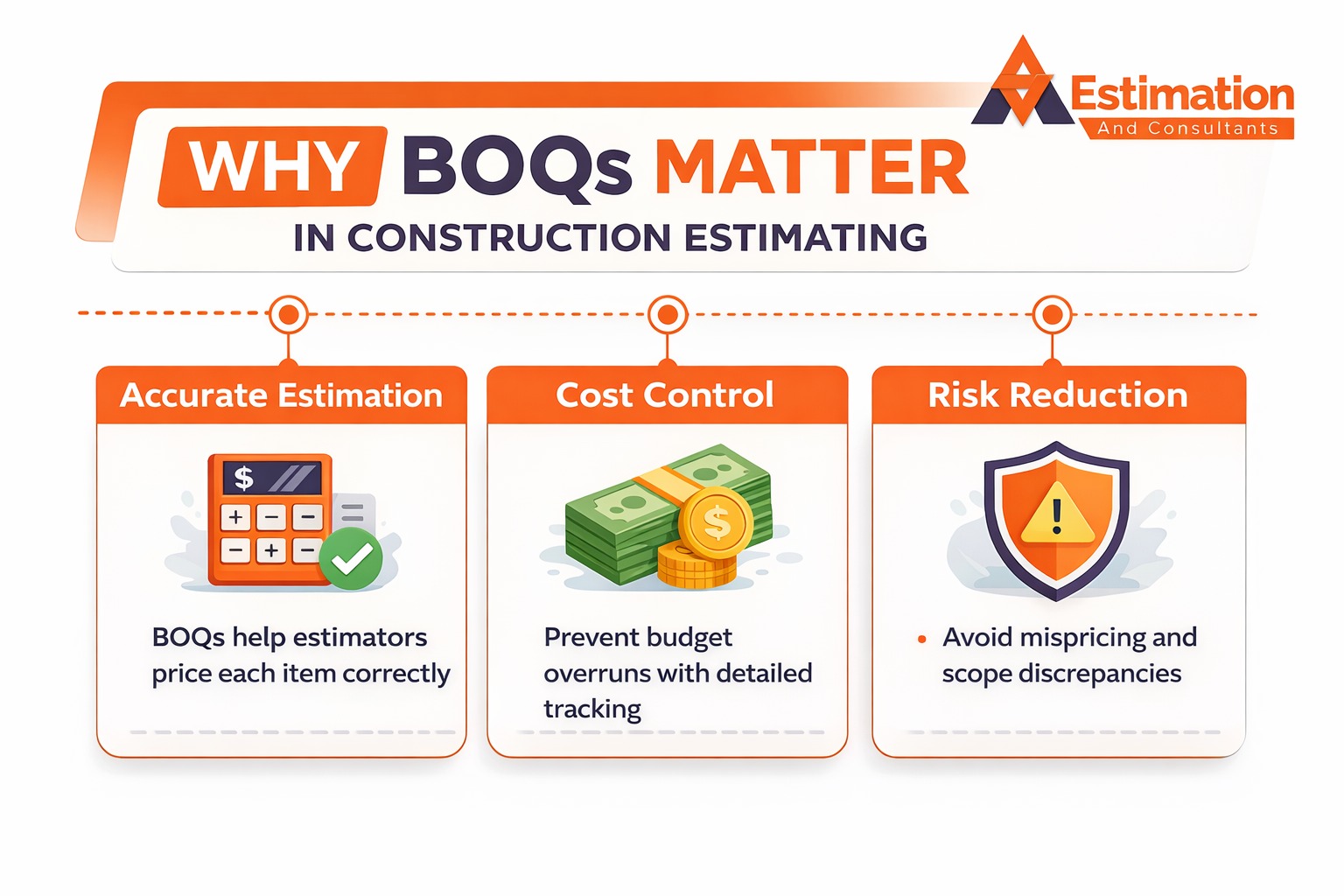Accurate and detailed project estimates are essential to managing any successful project. An estimate is more than a price tag; it’s a roadmap for your project, covering materials, labor, and timelines. However, getting a comprehensive and transparent estimate requires asking the right questions and understanding the key elements involved. Here’s a complete guide on how to get a detailed estimate and essential questions to ask your provider to ensure your project is set up for success.
Why a Detailed Estimate Matters
A detailed estimate helps lay the foundation for project planning. It’s not only about knowing the final cost but also understanding the breakdown of expenses, so you can plan effectively. Here are a few critical reasons why a detailed estimate matters:

- Avoiding Surprises: Without a detailed estimate, hidden costs can quickly add up and derail your budget. An itemized estimate lists every cost, so you’re less likely to encounter unexpected expenses later on.
- Efficient Budgeting: A well-prepared estimate allows you to prioritize spending across different project components. For example, if you see that labor is a significant portion, you might adjust your timeline or explore ways to save on materials to stay within budget.
- Improved Communication and Transparency: Clear estimates foster better communication between you and the service provider. With all costs laid out, you can have transparent discussions about where your money is going and set realistic expectations.
- Enhanced Decision-Making: When comparing multiple providers, an estimate with clear, detailed costs can help you make informed choices. You’ll be able to select the provider who offers the best value, not just the lowest price.
Preparing for the Estimation Process
To get an accurate and detailed estimate, preparation is key. Make sure you know what you need from the project and have the details on hand to help providers give the most precise estimate.

- Define Project Scope and Goals: Outline the project’s objectives, desired outcome, and any specific requirements. Clear scope helps the provider know exactly what you’re looking for, reducing potential misunderstandings or omissions in the estimate.
- Know Your Budget Range: Before requesting an estimate, have a general budget range in mind. This helps the provider tailor their proposal to meet your financial limits and allows for some flexibility.
- Specify Desired Materials and Quality Standards: If you have specific material preferences or quality standards, be sure to communicate these upfront. For instance, if you’re looking for eco-friendly materials or premium finishes, including these details will improve the accuracy in the estimate.
- Discuss Time Constraints: Let providers know about any deadlines or time flexibility. Providers can assess if they have the resources to complete your project within the required timeframe, which may impact labor costs and project timelines.
Essential Questions to Ask for a Detailed Estimate
Asking the right questions ensures that you’re receiving a complete and accurate estimate. Here are some key questions to help you get all the details:

1. What Are the Main Cost Categories Included?
Request a breakdown of the main cost categories, like materials, labor, equipment rentals, and subcontractor fees. Knowing what’s included helps you determine if the estimate is comprehensive or if other hidden costs might come up.
- Example: If your project involves custom fixtures, verify if design fees or special equipment rentals are included.
2. How Are Labor Costs Calculated?
Labor costs are often one of the largest components of a project. Providers may calculate labor based on hourly rates, daily rates, or a fixed price per task. Knowing how labor costs are calculated can help you understand why certain providers might charge more than others.
- Tip: Ask about the qualifications and experience of the workers assigned to your project. A skilled, experienced team may charge higher rates but often completes work more efficiently.
3. Are Materials and Supplies Itemized?
Material costs are a significant part of the budget, and providers should itemize these costs to show you the price of each material. This can help you identify if any materials are too expensive and explore more cost-effective alternatives.
- Follow-up: Request information on potential alternatives. For instance, if marble countertops exceed your budget, ask about more affordable options like quartz or granite.
4. Are Permits, Inspections, and Compliance Fees Included?
Certain projects require permits, inspections, and compliance with local codes. Permits and fees can sometimes be substantial, so it’s important to check if they’re included in the estimate.
- Key Point: Ask the provider if they handle the permit application process or if you’ll need to handle it. Knowing this will help you avoid delays due to paperwork.
5. What Are Potential Cost Variances?
Materials, labor, and unforeseen issues can cause costs to fluctuate. Some providers might include a contingency fee to cover these changes. Ask if the estimate includes a buffer for potential variances and if so, how much.
- Insight: A standard contingency fee is usually 5-10% of the project cost. This protects both you and the provider against unexpected expenses, ensuring the project can proceed smoothly.
6. What Are the Payment Terms?
Each provider has different payment structures. Some may require an upfront payment, others milestone payments, or a final balance upon completion. Knowing these terms in advance helps you manage your finances better.
- Key Consideration: Inquire if the provider offers any discounts for paying in full or if there are penalties for delayed payments. This can help you budget better and avoid unexpected financial burdens.
7. Are There Any Hidden Costs?
Additional fees, minor repairs, or equipment rentals can often lead to hidden costs. Ask for a list of any “extra” fees that may not be included in the initial estimate to avoid surprises.
8. How Will Changes Be Handled?
Changes often arise due to project developments or unforeseen circumstances. Some providers have a formal change order process, while others may adjust on the go. Understanding how changes impact costs and timelines keeps you prepared.
- Example: If you decide mid-project to upgrade materials, the provider should issue a revised estimate with the additional costs and revised timeline.
9. What Happens if the Project Timeline is Extended?
Delays can arise for various reasons, from bad weather to supply chain issues. Some providers may charge extra for extended timelines, so it’s essential to understand how they handle these situations.
10. Can You Provide References or Past Project Examples?
Providers with a solid reputation should be able to provide references or examples of similar projects they’ve completed. This allows you to evaluate their expertise and reliability.
Analyzing and Comparing Estimates
Once you have estimates from multiple providers, it’s time to review them. Here are some aspects to focus on:

1. Compare Itemized Costs
Itemized costs allow you to see how each provider allocates funds to different areas, from labor to materials. Comparing itemized details across providers helps identify any outliers in pricing.
2. Evaluate Provider Communication
A provider’s responsiveness during the estimate process often reflects their communication style throughout the project. Look for clarity, prompt responses, and willingness to answer your questions in detail.
3. Review Warranties and Guarantees
Some providers offer warranties on materials, labor, or even the entire project. Understanding the terms of these warranties ensures that you’re covered if any issues arise.
4. Assess Payment Structures
Payment structures differ, and some may better suit your cash flow than others. Choose a provider whose payment terms align with your financial plan.
Red Flags to Watch for in Estimates
To ensure you’re getting a fair deal, keep an eye out for warning signs:

1. Vague or Missing Details
Professional estimates should be transparent and clear. If details are missing or vague, ask for clarification. Vague estimates can indicate poor organization or lack of experience.
2. Extremely Low or High Bids
Very low bids may signal corner-cutting on materials or labor quality. On the other hand, very high bids should justify their premium with specific details on quality or unique services.
Maximizing Value in Your Estimate Process
Detailed estimates offer more than just cost accuracy—they reflect the quality and reliability of the provider.
- Research and Prepare: Knowing basic costs and materials lets you see where your money goes.
- Open Communication: Keep regular, open discussions with your provider.
- Consult When Needed: Ask an expert for advice if you’re unsure about specific estimate details.
Conclusion
A detailed estimate ensures clarity, reduces financial surprises, and provides the transparency needed to manage your project effectively. By asking these essential questions and analyzing estimates closely, you’re set up for a successful project from the start.
For more support in your estimating needs, consider AS Estimation & Consultants—our experienced team is here to help you achieve precision and peace of mind in every estimate.


